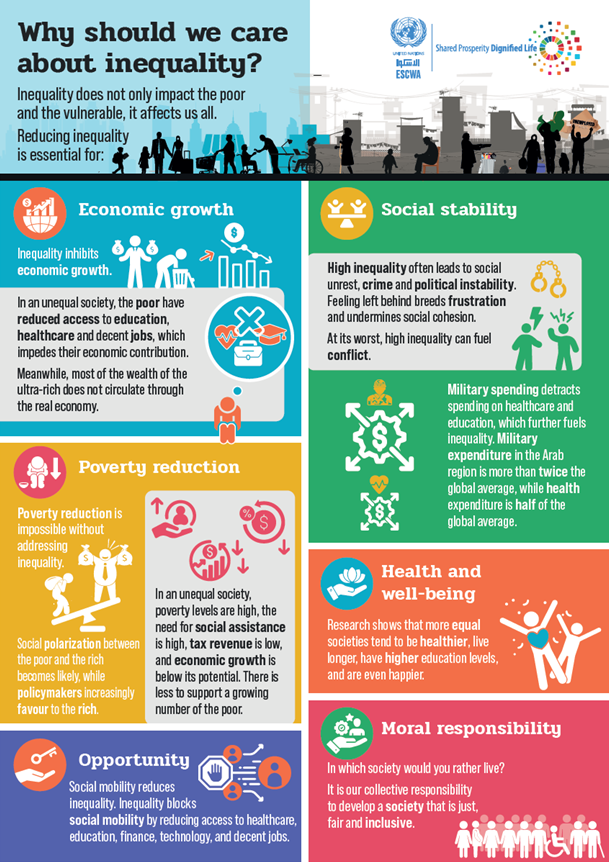
Why should we care about inequality? News source
Inequality does not only impact the poor and the vulnerable, it affects us all.
Reducing inequality is essential for:
Economic growth
Inequality inhibits economic growth.
In an unequal society, the poor have reduced access to education, healthcare and decent jobs, which impedes their economic contribution.
Meanwhile, most of the wealth of the ultra-rich does not circulate through the real economy.
Social stability
High inequality often leads to social unrest, crime and political instability. Feeling left behind breeds frustration and undermines social cohesion.
At its worst, high inequality can fuel conflict.
Military spending detracts spending on healthcare and education, which further fuels inequality. Military expenditure in the Arab region is more than twice the global average, while health expenditure is half of the global average.
Poverty reduction
Poverty reduction is impossilbe without addressing inequality.
In an unequal society, poverty levels are high, the need for social assistance is high, tax revenue is low, and economic growth is below its potential. There is less to support a growing number of the poor.
Social polarization between the poor and the rich becomes likely, while policymakers increasingly favour to the rich.
Health and well-being
Research shows that more equal societies tend to be healthier, live longer, have higher education levels, and are even happier.
Opportunity
Social mobility reduces inequality. Inequality blocks social mobility by reducing access to healthcare, education, finance, technology, and decent jobs.
Moral responsibility
In which society would you rather live?
It is our collective responsibility to develop a society that is just, fair and inclusive.



